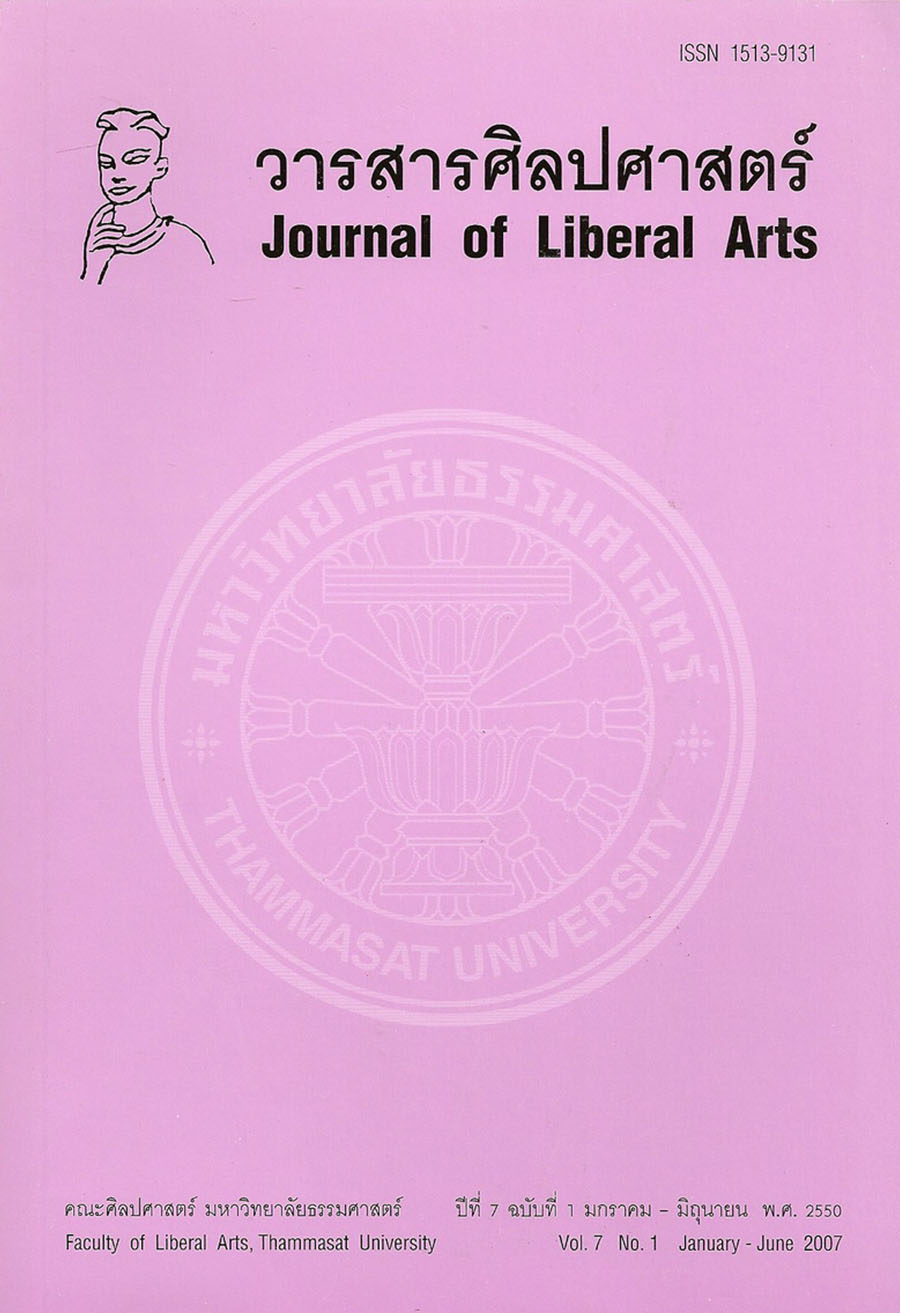เจมส์ โลว์ กับการแสวงหาความรู้ของนักอาณานิคม
Main Article Content
บทคัดย่อ
บทความนี้จะสำรวจงานเขียนของเจมส์ โลว์ เจ้าหน้าที่ของบริษัทอินเดียตะวันออกที่ประจำอยู่ที่เกาะปีนังในครึ่งแรกของคริสต์ศตวรรษที่ 19 วิเคราะห์กระแสแนวคิดที่มีอิทธิพลต่อการค้นคว้าของเจมส์ โลว์ วัตถุประสงค์ส่วนตัวของเขา รวมทั้งทัศนคติที่มีต่อชาวเอเชียตะวันออกเฉียงใต้ โดยพิจารณางานเขียนของเขา 3 เรื่อง ได้แก่ A Grammar of The T,hai ot Siamese Languge จดหมายเหตุเจมส์ โลว์ และ A Translation of the Keddah Annals termed Merong Mahawangsa งานเขียนของเจมส์ โลว บ่งชี้ว่าเขาได้รับอิทธิพลจากลัทธิเศรษฐกิจการเมืองและลัทธิประโยชน์นิยม (Unitarianism) ที่แพร่หลายในครึ่งแรกของคริสต์ศตวรรษที่ 19 ทำให้เขาเชื่อมั่นในระบบการค้าเสรีซึ่งถ้านำไปใช้แล้วจะทำให้เกิดความเจริญ ความเสมอภาค และความมั่งคั่งได้ไม่ว่าในที่ใดของโลก ชาติที่เจริญกว่าอย่างอังกฤษมีสิทธิชอบธรรมที่จะเข้ายึดครองดินแดนของชาติอื่นที่ด้อยความเจริญกว่าเพื่อสร้างความเป็นอารยะให้แก่ดินแดนเหล่านั้น งานค้นคว้าของเจมส์ โลว์ มีวัตถุประสงค์เพื่อหาข้อมูลความรู้อันเป็นประโยชน์ทางการเมืองและการค้าให้แก่อังกฤษ โดยเชื่อว่าวิธีการค้นคว้าอย่างเป็นวิทยาศาสตร์จะทำให้เข้าถึงความจริงได้
The purpose of this article is to examine three selected writings of James Low, one of English East India Company’s officers administers stationed in Penang in the early half of the nineteenth century. Ideological influences on his work will be analyzed as well as the objectives of his writings and his views towards the indigenous people. The three selected writings are A Grammar of The T,hai or Siamese Language, Journal of a Public Mission to Raja of Ligor and A tranalation of the Keddha Annals termed Merong Mahawangsa.His work indicates that he was influenced by the Enlightened ideas of British philosophers both the classic liberals and the Unitarianists. Low belived in the power of free trade. It would bring forth progress, equality and prosperity to every nation and race. Great Britain, as the most civilized nation, had the right to intervene in the affairs of the less civilized countries or even colonize them for the betterment of their oppressed citizens. His quest for knowledge is to find facts about the natives for the Company’s political advantages and commercial gains. He believed the scientific methods he employed would certainly bring him to the truth.

